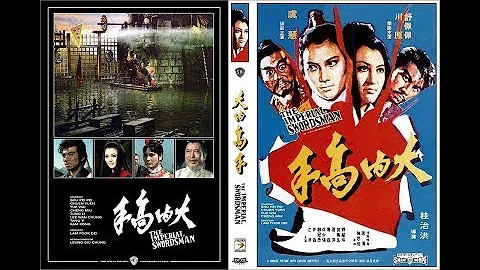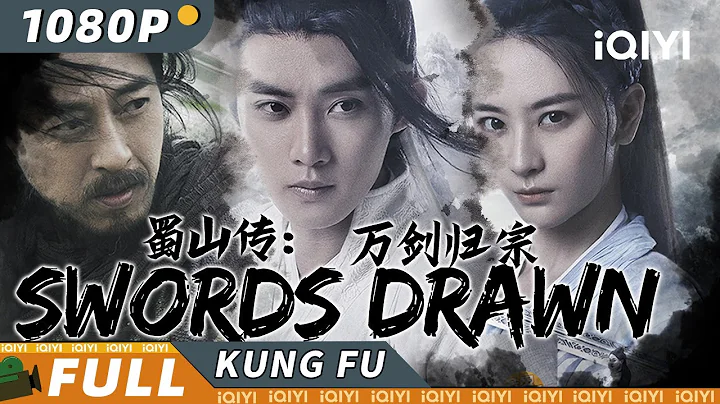In the first part of " Swordsman ", Hengshan faction number two figure Liu Zhengfeng held a "golden basin to wash hands" ceremony to announce his withdrawal from the world, which was a very important thing. At the ceremony, many key figures in "The Swordsman", such as Yue Buqun, Zuo Lengchan, etc., all appeared on stage.

In order to successfully "wash hands in a golden basin", Liu Zhengfeng made sufficient preparations. One of the tasks was to be named and general by the imperial court after some preparations. At the "Golden Basin Washing Hands" ceremony, an official named Mr. Zhang came to read the emperor's imperial edict and awarded Liu Zhengfeng the position of general.
Why did Liu Zhengfeng do this? In Liu Zhengfeng's original words, it is: "Brother has been favored by the court and becomes a small official. As the saying goes: eating the emperor's salary is the first thing to be loyal to the emperor. In the world of politics, loyalty is important; in official affairs of the country, one must obey the law and abide by the law. Repay your kindness." Liu Zhengfeng used this to express to everyone that he would completely withdraw from the world and no longer care about the grudges and grudges in the world.

According to the setting of martial arts novels, the court and the world are two completely different worlds. People in the world look down upon the imperial court. The people in the martial arts world who participated in Liu Zhengfeng's "golden basin hand washing" ceremony "have various reputations in the martial arts world. They are all people who think highly of themselves and have never looked down upon the government." They despised Liu Zhengfeng's behavior very much, and mentally scolded him for being "money-seeking, so he would do whatever it takes to buy an official to serve him." They also described the general as a "little military attache with sesame seeds and mung beans."
It is not surprising that people in the world have this understanding. After all, as mentioned before, Jianghu has nothing to do with the imperial court. How the imperial court operates is completely confusing to Jianghu people. In fact, from the establishment of the official position until its disappearance, the official position of military attaché can be regarded as a senior military attache, not a "little military attaché with sesame seeds and mung beans" as people in the world ridiculed.

Before the Ming Dynasty, there was no such official position as general. After the founding of the Ming Dynasty, a central official system was established, represented by Zhongshu Province, , cabinet, and six ministries, and a local official system represented by the Proclamation Department, the Prosecution Department, Dao, Prefecture, Prefecture, and County. The military official system is represented by the Five Military Governor's Office , the Du Commander's Department, and the Guards Office .
Joining the army belongs to the sequence of the Five Military Governor's Mansion (center, left, right, front and back). Each of the Five Military Governor's Mansion has established officials such as left and right governors, governors and magistrates, governors, ministers, experiences, and governors. However, these official positions are empty and have no real power. Only by adding the official titles of general soldier , deputy chief soldier, staff general, guerrilla general, camp officer, garrison officer, general commander, promotion officer, etc. can one have the real power to lead troops.

Among these official ranks, the chief soldier is the highest, followed by the deputy chief soldier, and the staff general is the third, which is a higher-level military attaché. If we want to make an analogy, it is roughly equivalent to today's military region commander.
However, during the Ming Dynasty, the official titles of chief soldier, deputy chief soldier, staff general, and guerrilla general were initially temporary assignments with no fixed number of personnel and no grades. The appointment ended after completing the task. Later, as wars became more frequent, these official titles gradually became permanent military attachés, but they were still in a state of no quota and no rank.
This state was changed only in and in the Qing Dynasty.
As we all know, the Qing Dynasty adopted a "lazy" approach in establishing official positions, and most of them followed the Ming Dynasty's official positions. Therefore, most official positions in the Ming Dynasty were retained, including the aforementioned generals.

In the sequence of military attaches in the Qing Dynasty, the highest was the first grade, and the lowest was the unofficial. The first-grade military attachés include the minister of bodyguards, the minister in charge of the bodyguards, generals Yili , and Suiyuan generals. The first-grade military attaches include the garrison generals, commanders, and admirals. The second-grade military attaches include the commanders of the Eight Banners Guards (left and right). There are commander-in-chief of the wing forward, deputy commander-in-chief, and commander-in-chief of the army. There are deputy generals starting from the second-grade military attache. The military attache is a third-grade military attaché, and is on an equal footing with the infantry wing lieutenant, first-class bodyguard, firearms battalion wing commander, Jianrui battalion wing commander, forward officer officer, and guard officer officer.
Below the generals, there are also the coated guard military officer, coated knight commander, first-class palace guard, guerrilla, assistant leader, Dusi, command officer, city gate leader, coated guard deputy officer, etc. A series of lower level military attachés.
So, what matters did the generals of the Qing Dynasty mainly govern?
In the Qing Dynasty, the highest military officer of each province was the admiral; towns were established below the province, and the highest military officer of each town was the general; under the towns, associations were established, and the highest military officer of each association was the deputy general; under the association Camps are set up, and the highest military officer of each battalion is a general.

Obviously, during the Qing Dynasty, military attachés were also higher-level military attachés, and they were not "little military attachés with sesame seeds and mung beans."
Interestingly, in the late Qing Dynasty, due to frequent wars, soldiers could easily obtain higher official ranks based on military merit, making admirals and general soldiers "bad". When Zuo Zongtang was the governor of Liangjiang, he once led a team to inspect Shanghai. He brought with him 40 personal soldiers. All of these 40 people were first- and second-grade admirals and general soldiers. They seemed to be cheering in front and behind, and they were quite majestic.
At this time, not to mention the general, even the deputy general became nothing unusual.





















